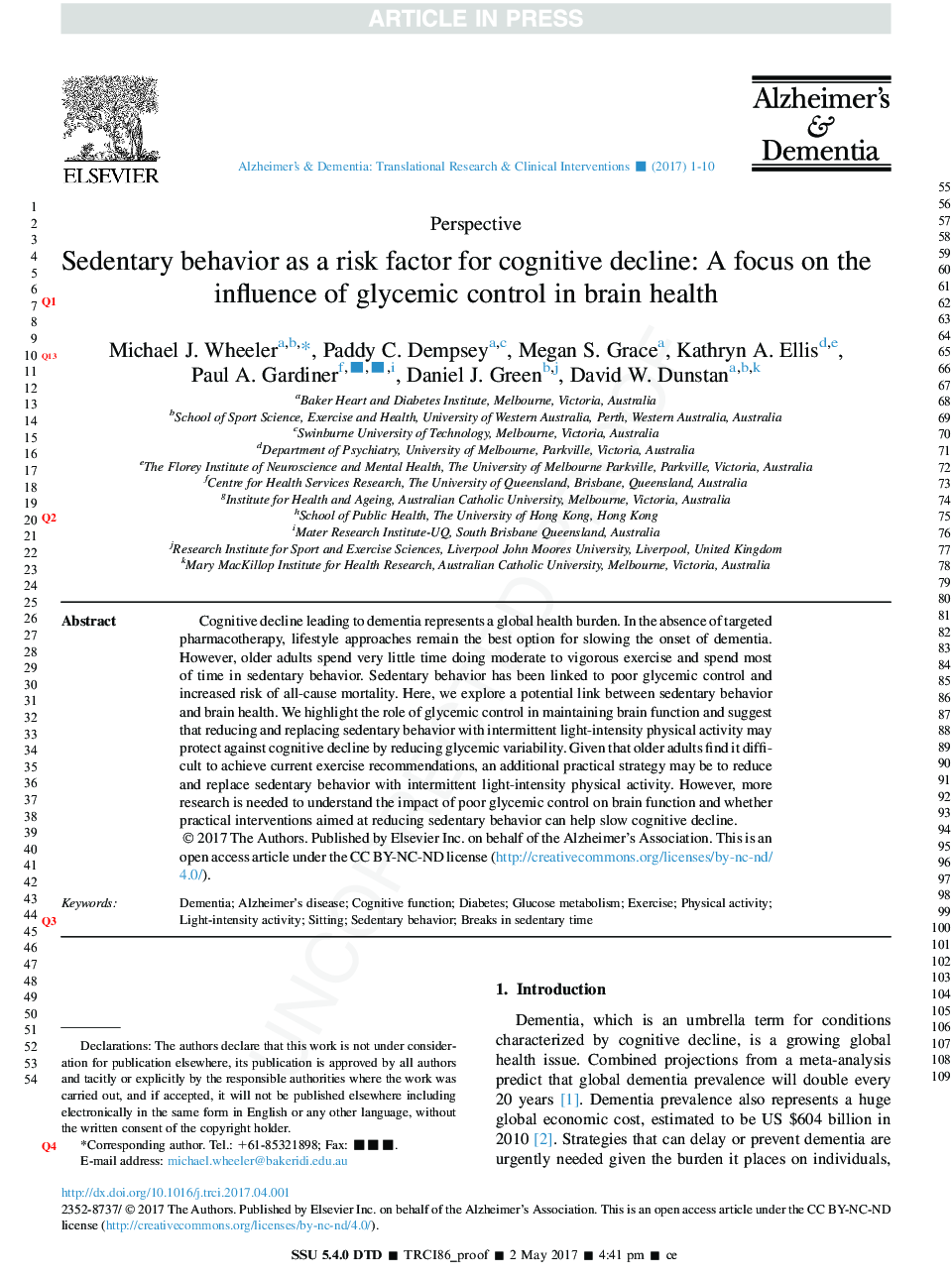| Article ID | Journal | Published Year | Pages | File Type |
|---|---|---|---|---|
| 8680572 | Alzheimer's & Dementia: Translational Research & Clinical Interventions | 2017 | 10 Pages |
Abstract
Cognitive decline leading to dementia represents a global health burden. In the absence of targeted pharmacotherapy, lifestyle approaches remain the best option for slowing the onset of dementia. However, older adults spend very little time doing moderate to vigorous exercise and spend a majority of time in sedentary behavior. Sedentary behavior has been linked to poor glycemic control and increased risk of all-cause mortality. Here, we explore a potential link between sedentary behavior and brain health. We highlight the role of glycemic control in maintaining brain function and suggest that reducing and replacing sedentary behavior with intermittent light-intensity physical activity may protect against cognitive decline by reducing glycemic variability. Given that older adults find it difficult to achieve current exercise recommendations, this may be an additional practical strategy. However, more research is needed to understand the impact of poor glycemic control on brain function and whether practical interventions aimed at reducing and replacing sedentary behavior with intermittent light intensity physical activity can help slow cognitive decline.
Keywords
Related Topics
Life Sciences
Neuroscience
Neurology
Authors
Michael J. Wheeler, Paddy C. Dempsey, Megan S. Grace, Kathryn A. Ellis, Paul A. Gardiner, Daniel J. Green, David W. Dunstan,
